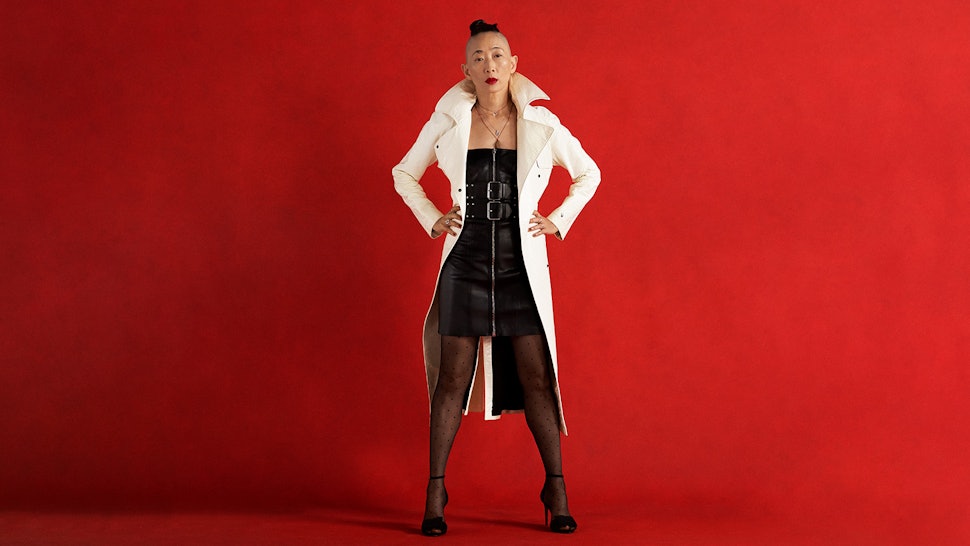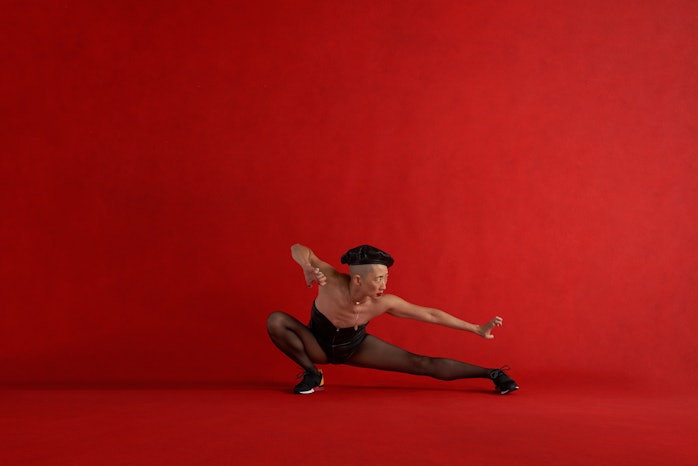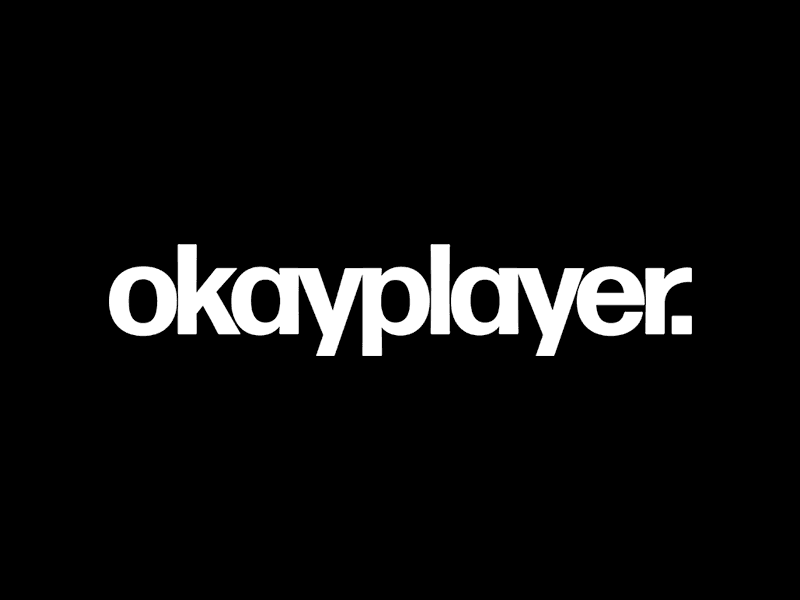[IMG]https://www.billboard.com/files/media/sophia-chang-baddest-*****-2019-billboard-embed.jpg[/IMG]
You’ve titled your audiobook The Baddest ***** in the Room and you are narrating it yourself because you wanted listeners to be exposed to your voice—both figuratively and literally. From a creative standpoint, how much time did you spent writing your memoir and when did you start recording it?
So I started writing my memoir last April. I turned in my first draft in August. I turned in a close-to-final draft again in January. I guess it took me eight months to write, and the production behind it has been incredibly ambitious, as you hear. That took a long time. It’s a seven-and-a-half-hour-long audiobook. Recording myself took 20 hours, which is extraordinarily fast. But I have 24 guest voices. No one has ever done this before in an audiobook.
When you were sitting down and writing your memoir and putting your thoughts down, did you have any goals? What did you want to accomplish with your story?
I think what I wanted to accomplish was to inspire people. People have been telling me for years, "Oh, you know, Sophia you gotta write a book. You have such a crazy life. You have all these amazing stories." And I resisted it for a long time because, frankly, it felt like an exercise in narcissism, right? A banal tale of hanging out with famous people. I knew that I didn’t want to do that.
So when I discovered in telling my story I can actually be helpful and be of service of other people, then it gelled for me. But not before that, right? Because self-aggrandizement and self-enrichment and fame, I don’t care about any of that ****. I do not care. So when I finally decided that I was going to write my memoir, and put my story down for history, I did it because I knew that I would be able to inspire -- and hopefully -- empower people.
Before your audiobook’s release, you’ve been tweeting the guests in your memoir, sharing a bit about why they all mean something to you. With your experience in the music industry, can you share some advice on maintaining meaningful relationships in the music industry? Some of these people have stuck with you as you evolved in your career, and genuinely have become your friends.
I love that question. I talk about it in my memoir in talking about [Ol' Dirty *******], God rest his soul. ODB was my first management client. And what I understood immediately and profoundly was my artists had to trust me. I think they would all say this, that Sophia Chang did everything in the best interest of her client. Whereas I think there are plenty of people in entourages that do things that are self-servicing. However that plays out. I wasn’t that interested in getting things for myself, what was satisfying for me was helping artists realize their creative vision and getting their stories out there.
So number one, trust is key. And I think we can say that about any relationship, any given human interaction. And second, I say in my memoir that hip-hop taught me my greatest lesson about loyalty. All of those artists you have seen on my Twitter and you will continue to hear on my memoir have been incredibly loyal to me and me to them in return.
Raekwon was the first member of Wu-Tang that I got, and he was like, "Soph, I know you didn’t think I wasn’t going to come through for you." I was like, "No." And he said, "You know it was just a matter of time and that I am not never, never going to come through for you." I said, "Absolutely." And we had this incredible conversation, and he in turn -- and I love Rae for this; you know, he and [Ghostface] are obviously close -- he said to Ghost [to do the audiobook].
When I saw both of them later, I saw Ghost and he said, "So, we’re going to do the audiobook thing, right?" I said, "Yeah, we’re going to do it." And he said, "Yeah, Rae told me, Rae told me." When we saw Rae, he was like, "Yo, did you do it yet? Did you do it for Soph yet?" [Laughs.] And you know, Rae was the first Wu-Tang domino, and he’s the one that really kicked it off. He cajoled Ghost. I was going to get Ghost anyway, but not easily as I would have if Rae have not been my advocate. That’s a ride or die. That’s why I say, "My name is Sophia Chang and I was raised by Wu-Tang."
In your memoir, you say you became closest with Ol' Dirty *******. He was able to enter your chamber where he could be his “goofy, brilliant, sometimes vulnerable self,” as you described. Why did you and ODB click so well?
I think ODB, God rest his soul, and I clicked so well is the same reason why I clicked so well with all my artists. Dirty used to say to me, "Sophie, I love the **** out of you. And you know why? When I’m around you, I don’t have to be Ol' Dirty *******, I can be Ason Unique." Ason Unique is his righteous Five Percenter name. He also has an amazing sense of humor, I think we used to make each other laugh. I think what all of them would tell you is I treated them like people. I didn’t treat them like stars, nor did I treat them like the anomaly. I think one of the things that I hope comes through in my memoir is the profound humanity of the guys in the Clan.
Nobody has the perspective that I do on Wu-Tang, because nobody has the relationship that I do with Wu-Tang. RZA said, "Who is Sophia Chang? In the Wu-Tang Clan, she is the yin to our yang." At once, she’s kind of like our auntie, she’s kind of like our sister. And I don’t know, frankly, if anyone else occupied that space. And he knew that.
When you talk about getting into the music industry in 1991, it sounds like we come from two different worlds when I compare it to my experience. Do you think it was more open and collaborative back then? Were more people about experiencing the growth of hip-hop from a subculture to mainstream?
Yeah, I moved to New York in ’87. So my first job at Jive was in ’91. But I immersed myself in the scene in ’87. And at that time, hip-hop was still No. 1, very New York-centric. You certainly had artists in the West Coast and the South and stuff like that but not like the proliferation that you see now. New York was still very much the nexus of hip-hop. And it was also a small scene, like you said, it wasn’t mainstream yet. It was still an underground scene and it was still a subculture. And there’s no Internet, right? The dissemination of music only came through the gatekeepers, meaning record companies and radio. There was no listening to SoundCloud. There were no places that you could put up your mixtape. There were these very specific gatekeepers, and I’m grateful for the iterations of those.
But where we all gathered was in the clubs. So in a club you would have MCs, DJs, rap artists, B-Boys. They are the creatives, right? But you would also have managers, A&Rs, publicists, attorneys, touring agents. You had everybody in it. It was a very small, insular scene. And to that end, I would say it was collaborative -- but it was also felt so distinctly like a community, because we were all so excited.
You know, for me, the green, Canadian French lit major, it was a deep privilege to be welcomed into this world that was not of my making. I’m welcomed into somebody else's world and somebody else’s culture. And we were all very, very close. We were also excited because we were making discoveries together, because another way we heard of the music was at the clubs.
So I’ll give you an example: DJ Clark Kent. One of the greatest DJs of all time. I was at the club when he broke a Color Me Badd song called “I Wanna Sex You Up.” And It was a huge ****ing hit. The first time any of us heard it was that he had a white label, which is a 12” that didn’t have the art or anything yet. It was an advanced copy, and he played it at the club and none of us had heard it. He broke the record, single-handedly, at that club. It was incredible.
If you still keep an eye on the industry now, what do you think about it? There’s definitely an emphasis on things like influencers, brands, data, and streaming numbers.
I think the industry is exactly where it is supposed to be, with the advent of technology and social media. I am not really attached to it anymore. I don’t have my finger on the pulse anymore. I don’t know who the latest, greatest artists are. I don’t know who the biggest influencers are. It’s very foreign to me, because that’s not how I interacted in the industry. But I also think that’s just where the state of the business is now, because technology is a behemoth.
The music industry lost for years and years, because we were in denial of technology. We didn’t understand what Napster was, and what it could do for the business. I mean imagine being in the music business, here comes Napster, and all of a sudden the stuff that you produce and make and sell for $24.99 a CD is suddenly free? And the whole world believes they should get this thing that you made for free. Here comes the collapse, right? And the music business is, as the French would say, bouleversée -- it’s turned upside down and it doesn’t know what to do. So I think it is exactly where it should be. But I think the evolution of it is really fascinating.




 Reply With Quote
Reply With Quote






